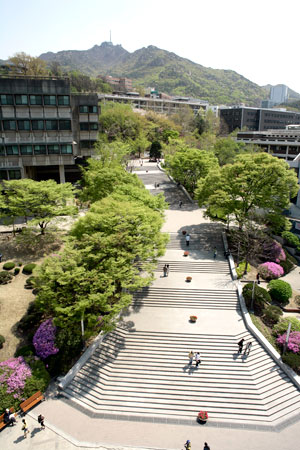Human Rights
Human rights are basic rights necessary in order to maintain human dignity.
Human rights are a concept derived from the humanity’s ceaseless efforts to improve their condition even in situations where their dignity and value are being infringed. Through such efforts, equal rights for humans have extended in a wide range, and the perception on human rights has been transformed throughout the conditions of history. The necessity to protect human rights was internationally confirmed after the violations committed by the Nazi regime to the Jews, gypsies, people with disabilities, and sexual minorities. To prevent such tragedies, the United Nations adopted the Universal Declaration of Human Rights in 1948.
The Universal Declaration of Human Rights, as a compilation of human rights standards, developed by each country and made applicable at the international level, contains the universal minimum standards for rights and dignity of all humankind. The Universal Declaration of Human Rights encompasses a variety of human rights that we call social and civil and political rights. Since its establishment, the international community has worked to develop international human rights conventions on diverse subjects such as social rights, civil and political rights, racial discrimination, torture, gender discrimination, children, migrant workers, people with disability, forced disappearance, and so on. This has highly influenced numerous states’ constitutions and formed a ground for basic rights in each nation
The Article 10 of the Constitution of the Republic of Korea states that ‘All citizens are assured of human worth and dignity and have the right to pursue happiness. It is the duty of the State to confirm and guarantee the fundamental and inviolable human rights of individuals.” Hereafter, until Article 37, the Constitution stipulates the principle of equality, civil and political rights, suffrage, social rights, and rights to claim.

All human beings deserve basic human rights regardless of gender, age, race, skin color, ethnicity, region of origin, disability, physical condition, religion, language, marital status, pregnancy, social status, sexual orientation, and political and other kinds of opinions. The basis of human rights derives from the fact that all people are equal and independent, worthy of respect and fair treatment. Human rights are connected to various aspects of our life, from everyday personal relationships among individuals, to life at schools, work places, and public institutions, human rights are related to the various aspects of life.
The SNU Human Rights Center Regulation offers an inclusive definition of human rights: “human dignity, freedom, and rights we possess as human beings.” Therefore, it can be broadly interpreted as the human dignity, freedom, and rights recognized in international human rights conventions that the Republic of Korea has ratified, international case law, and the Constitution.

